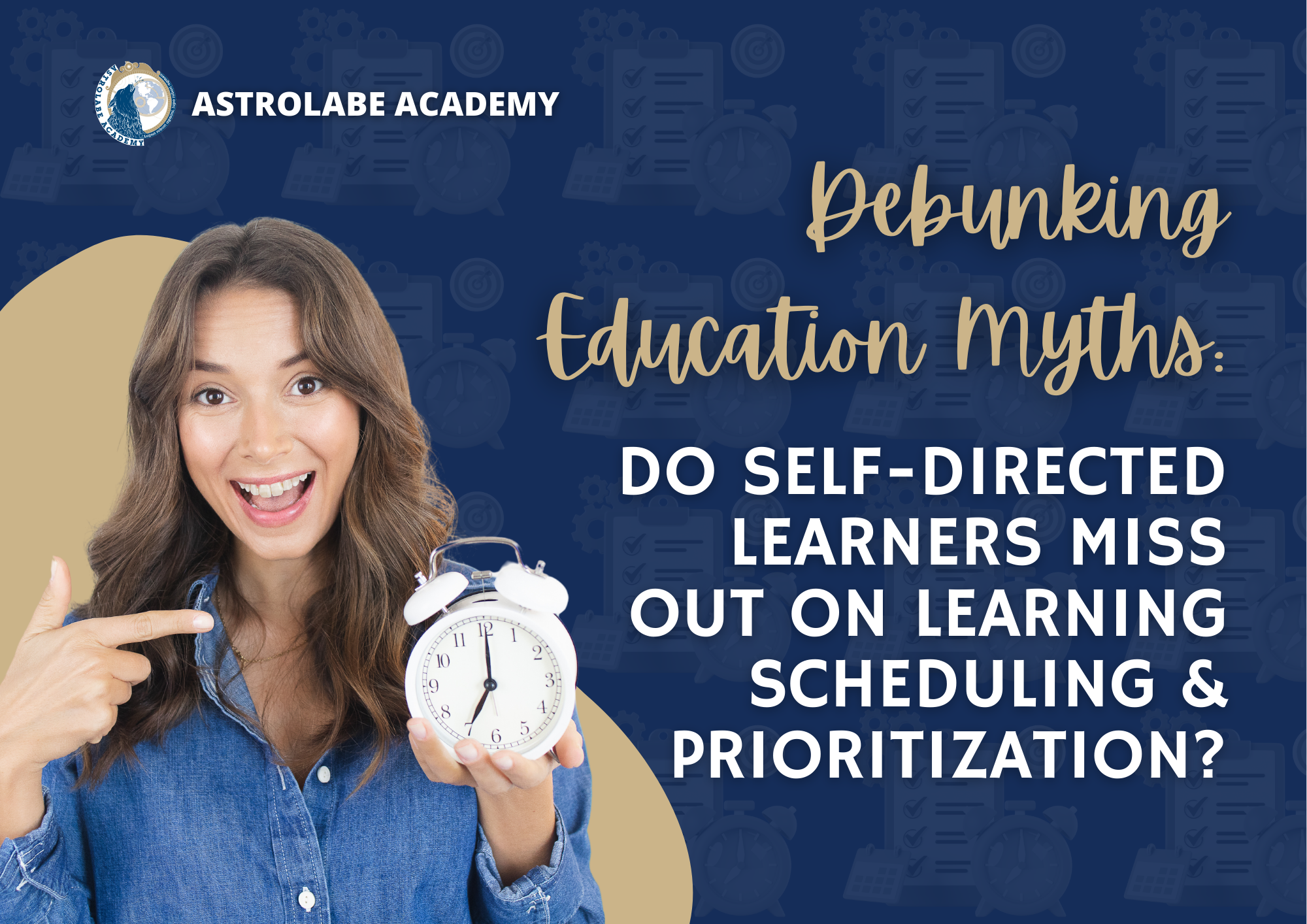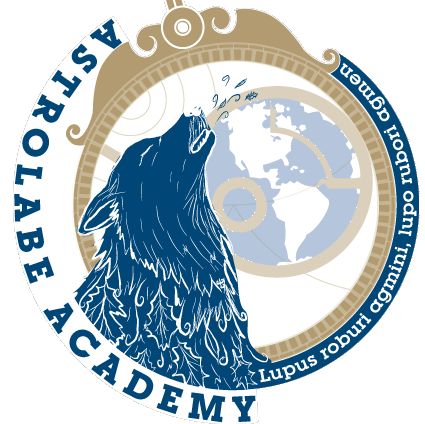Blog
Debunking Education Myths
Do Self-Directed Learners Miss Out on Learning Scheduling & Prioritization?
Setting the Stage
When it comes to reimagining the educational journey of our teens, the conversations are never short of diverse opinions and concerns. From last week’s deep dive into the feared “gaps in education” to today’s myth, it’s clear that the path of self-directed education raises many questions for parents. Today, we aim to dispel another prevalent myth: “Without structured schooling, our teens won’t learn to schedule and prioritize.”
Understanding Self-Directed Education: It’s Not About Lack of Structure
It’s crucial for us to start with a basic understanding. Self-directed education isn’t synonymous with a lack of structure. Instead, it represents a flexible structure that molds itself around the learner’s needs. The idea isn’t to throw out the playbook but to let the learner dictate the game.
Organic Learning in the Real World
Have you ever paused to reflect on how you acquired some of your most invaluable life skills? More often than not, these lessons stemmed from real-world experiences and challenges. But let’s dig a little deeper into this narrative. Many of us also cultivated these skills by observing the adults in our lives. Watching our parents, guardians, or other influencers often provided us with models of how to manage time, make decisions, or juggle responsibilities.
The principles of self-directed education are no different. With the liberty to chase their interests, teens don’t just learn the topics they’re delving into. They’re also absorbing essential life skills like time allocation, task prioritization, and deadline management. Especially when they have role models in their lives – parents or other adults – who exhibit these skills proficiently.
A Day in the Life of a Self-Directed Learner
To bring this concept to life, consider this little experiment: Imagine allowing a teen to plan an entire day based on their interests and learning objectives. This could involve researching an intriguing topic, practicing a musical instrument, or maybe a visit to a science museum. By the day’s end, this teen wouldn’t only have acquired knowledge in their chosen areas but would also have gleaned insights into managing their time and setting priorities.
Conclusion: Redefining Learning Beyond Classroom Walls
As we navigate the ever-evolving landscape of education, it’s essential to challenge longstanding myths and acknowledge the myriad pathways to learning. Self-directed education, with its focus on real-world experiences and individual interests, provides a fertile ground for teens to not just acquire academic knowledge but to also develop as well-rounded individuals ready to face the world’s challenges.
With the upcoming release of “Busting the Myths of Education,” we’ll explore more such myths and discover the potential of self-directed learning. Stay tuned for more insights, and remember: reimagining education is the first step towards creating a more fulfilling learning journey for our teens.
Do you have any questions or concerns about this educational journey? I’m always here to help. Let’s reconnect with our children by embracing self-directed learning!
--------------------------
Join the discussion about this and other high school education topics in our Facebook Group "Alternatives to High School". The goal of the group is to give parents a place to discuss options to public/private school and standardized curriculum as well as share resources for educating teens.
EDCHAT SERIES
Busting the Myths of Education
Part 1: Self Directed Education
Part 3: Myth Busting-Traditional High School Education is the Only Path to Success
Part 4: Myth Busting-Alternative Education and the Fear of "Gaps"
Part 5: Myth Busting-Do Self-Directed Learners Miss Out on Learning Scheduling & Prioritization?
Part 6: Myth Busting-Learning to Sit Still & Focus
Part 7: Myth Busting-Becoming Well-Rounded Outside Traditional Education
Part 8: Myth Busting-They Won't Have Study Stamina
Part 9: Myth Busting-Beyond Traditional Curriculum
Part 10: Rethinking the "Necessities" of Education
Part 11: Preparing for College Beyond Traditional High School
Part 12: Building Bridges – Reconnecting with Your Teen
Part 13: Navigating Your Teen's Educational Journey
Part 14: Unveiling Emotoional Intelligence: A Deep Dive With Asttrolabe Academy's Teens
Part 15: Unleashing Creativity: A Reflection on Our Latest Interactive Session
__________________
Busting the Myths
Want to deep dive into this topic? Contact us to request a full day in-person seminar in your area!
By appointment
By Email:
info@astrolabeacademy.com
Non-Discrimination Policy
Astrolabe Academy welcomes all students regardless of race, religion, color, gender, nationality or ethnic origin.

